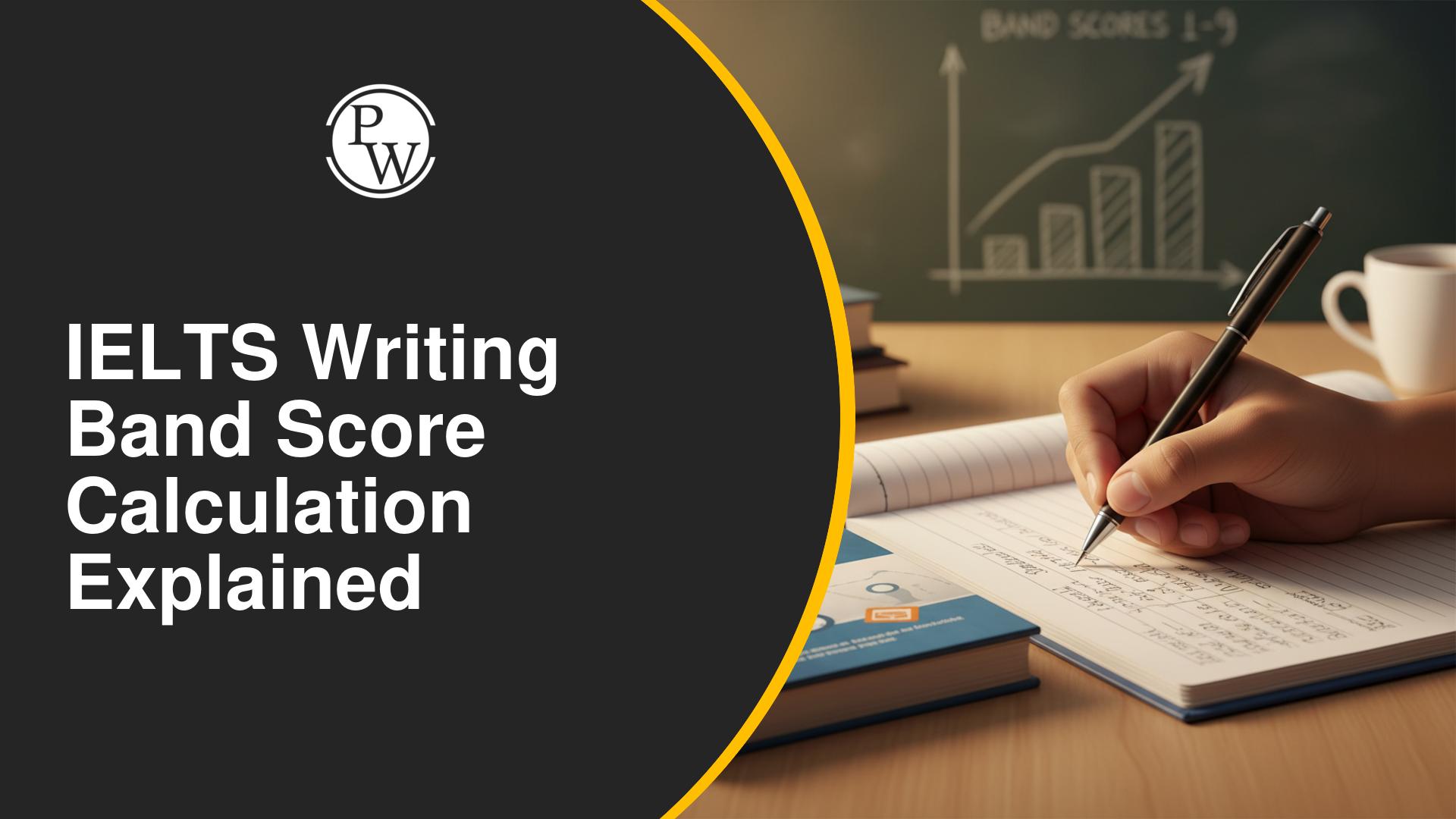
IELTS Speaking Band Score: If you're preparing for the IELTS exam, one of the most important sections is the Speaking Test. Whether you’re aiming to study abroad, get a job overseas, or apply for permanent residency, a good IELTS band score in speaking can make a big difference.
But how is the IELTS Speaking band score calculated? What do examiners look for? And most importantly, how can you improve your score?
In the article below, the IELTS Speaking Band Score is explained in simple words, with examples, tips, and everything you need to know as an Indian student preparing for the IELTS Exam.
IELTS Speaking Band Scores
The IELTS Speaking test score is based on four key criteria: Fluency and Coherence, Lexical Resource, Grammatical Range and Accuracy, and Pronunciation. The table below outlines what each band score typically represents in terms of performance.
| IELTS Speaking Band Scores | |
|---|---|
|
Band Score |
Description |
|
Band 9 |
Expert User Has fully operational command of the language: appropriate, accurate, and fluent with complete understanding. |
|
Band 8 |
Very Good User Has fully operational command of the language with only occasional unsystematic inaccuracies and inappropriacies. Misunderstandings may occur in unfamiliar situations. Handles complex detailed argumentation well. |
|
Band 7 |
Good User Has operational command of the language, though with occasional inaccuracies, inappropriacies, and misunderstandings in some situations. Generally handles complex language well and understands detailed reasoning. |
|
Band 6 |
Competent User Has generally effective command of the language despite some inaccuracies, inappropriacies, and misunderstandings. Can use and understand fairly complex language, particularly in familiar situations. |
|
Band 5 |
Modest User Has partial command of the language, coping with overall meaning in most situations, though is likely to make many mistakes. Should be able to handle basic communication in own field. |
|
Band 4 |
Limited User Basic competence is limited to familiar situations. Has frequent problems in understanding and expression. Is not able to use complex language. |
|
Band 3 |
Extremely Limited User Conveys and understands only general meaning in very familiar situations. Frequent breakdowns in communication occur. |
|
Band 2 |
Intermittent User No real communication is possible except for the most basic information using isolated words or short formulae in familiar situations and to meet immediate needs. Has great difficulty understanding spoken and written English. |
|
Band 1 |
Non-User Essentially has no ability to use the language beyond possibly a few isolated words. |
|
Band 0 |
Did Not Attempt the Test |
Explore - IELTS Online Courses
IELTS Speaking Test Format
The IELTS Speaking test is the same for both the Academic and General Training exams. Below is an overview of the IELTS Speaking test format, including the structure and focus of each part.
| IELTS Speaking Test Format | ||
|---|---|---|
|
Part |
What Happens? |
Duration |
|
Part 1 |
Introduction + Personal Questions (about family, hobbies, studies) |
4-5 minutes |
|
Part 2 |
You get a topic and speak for 1-2 minutes (1-minute preparation time) |
3-4 minutes |
|
Part 3 |
Follow-up questions about the topic in Part 2 |
4-5 minutes |
How is IELTS Speaking Scored?
The examiner gives scores in 4 categories. Each part is marked out of Band 9 and the average gives your final score.
|
Criteria |
What It Means |
|---|---|
|
1. Fluency and Coherence |
How smoothly you speak and organize your thoughts |
|
2. Lexical Resource |
How well you use vocabulary (including uncommon words and idioms) |
|
3. Grammatical Range and Accuracy |
How correctly and flexibly you use grammar |
|
4. Pronunciation |
How clearly and naturally you speak |
IELTS Speaking Band Descriptors (0 to 9) Explanation
Let’s understand what each score range means for Indian students:
Band 9 (Expert)
● Speaks naturally, with no hesitation
● Uses advanced words and grammar
● No noticeable mistakes
● Clear and easy to understand
Band 8 (Very Good)
● Fluent with rare mistakes
● Uses idioms and tough vocabulary well
● Slight grammar slips (not a big issue)
● Accent doesn't affect clarity
Band 7 (Good)
● Can handle most topics well
● Vocabulary and grammar are good
● Occasional repetition or errors
● Pronunciation is mostly clear
Band 6 (Competent)
● Can speak, but struggles with complex ideas
● Makes grammar and vocabulary errors
● May pause often to think
● Some words may be mispronounced
Band 5 and Below
● Talks only in short answers
● Struggles with grammar and vocabulary
● Pauses too much, hard to understand at times
● Limited fluency
Also Read:
How to Improve IELTS Speaking Band Score?
Follow the below-mentioned strategies to improve your IELTS Speaking Band Score:
-
Practice Daily: Speak in English with friends or record yourself.
-
Think in English: Avoid translating from your native language.
-
Expand Vocabulary: Learn 5–10 new words daily
-
Use Idioms Smartly: Like “once in a blue moon” or “break the ice”.
-
Avoid Memorized Answers: Be natural — the examiner can tell!
-
Join a Speaking Class: If you need expert feedback, consider a structured course.
Getting a Band 7 or above in IELTS Speaking is absolutely possible — even if English is not your first language.
So, whether you're applying for Canada, UK, Australia, or New Zealand, make your IELTS speaking preparation strong, stay confident, and speak your way to success!
| IELTS Reading Band Score | IELTS Listening Band Score |
| IELTS Speaking Band Score | IELTS Writing Band Score |
Guidance of PW IELTS
Physics Wallah offers multiple online IELTS courses for all students. Follow the IELTS pages to better prepare for the exam.
| What is IELTS Exam? | Documents Required for IELTS Registration |
| IELTS exam eligibility requirements | IELTS Exam Fees |
| IELTS test results | IELTS Exam Pattern |
IELTS Speaking Band Score FAQs
How to calculate IELTS Speaking bands?
How is IELTS speaking score calculated?
What is Band score 5.5 speaking?
Is 6.5 band score in IELTS Speaking good?
What is 4.5 band in IELTS speaking?
How is IELTS Speaking score calculated?
What is the band level of IELTS Speaking?
Can I get 6.5 in IELTS Speaking?










